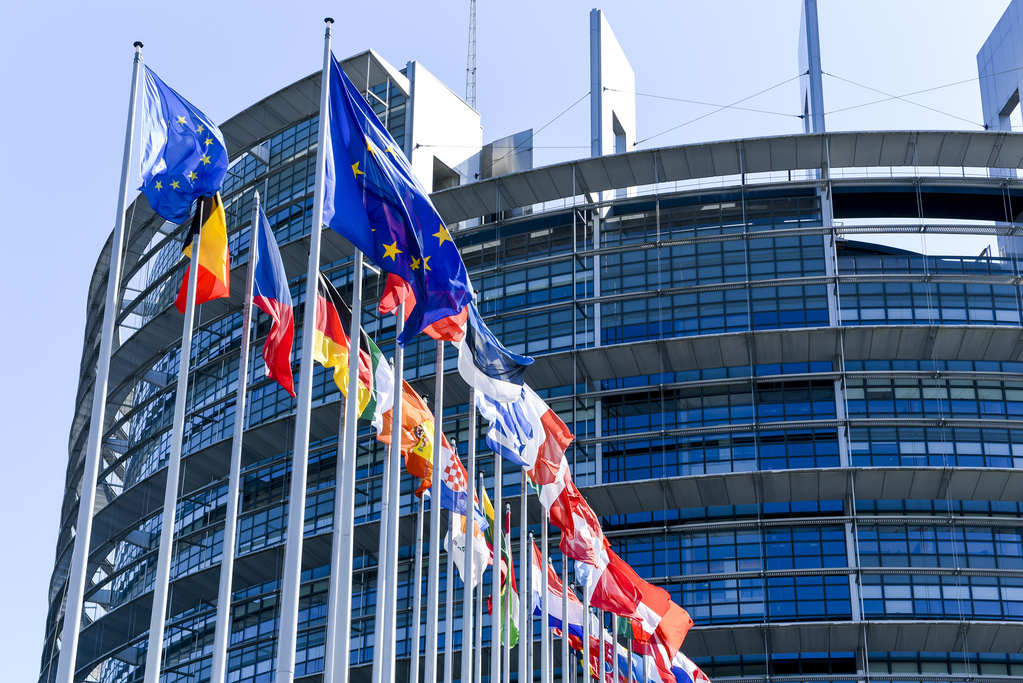BRUSSELS BEHIND THE SCENES
Weekly analysis and untold stories
With SAM MORGAN
Fluffed lines
The beauty of the European Parliament is that it can hold the European Commission to account and keep in check the vested interests of national governments. But that is all dependent on MEPs taking a break from infighting now and then. A big ask.
EU rule-making is fairly simple, once you strip away all the unnecessary nuts and bolts. The Commission comes up with a plan for something, MEPs and governments decide what they don’t like about it, then they all meet in a grubby backroom and hash out a deal.
Traditionally, the Commission will suggest something that its officials believe is politically feasible – rather than exclusively scientifically or economically required – then MEPs will push for more ambition before governments try to water it down.
That is a tried and tested dynamic. Elected representatives want to look like they are looking after the interests of their voters, while national governments rely on their electorate’s disconnect from Brussels to get away with supporting what they see as the ‘cheap option’.
BRUSSELS BEHIND THE SCENES is a weekly newsletter which brings the untold stories about the characters driving the policies affecting our lives. Analysis not found anywhere else, Sam Morgan helps you make sense of what is happening in Brussels. If you want to receive Brussels behind the scenes straight to your inbox every week, subscribe to the newsletter here.
Climate and energy legislation currently occupies the most limelight, as the EU’s ‘Fit for 55’ package of reforms continues to make its way through the legislative gauntlet. And we are starting to get to the really difficult part.
This week, MEPs missed an opportunity to stick to their assigned roles when they voted on a plan to revamp car CO2 emission targets. In the end, their agreed compromise largely mirrors what the Commission already proposed.
Lawmakers on the environment committee decided not to support stricter interim targets for carmakers but did sign off on a 2035 benchmark that will essentially mean all new cars have to be zero-emissions.
Conservative and some progressive MEPs voted down the interim amendment, out of fear stricter targets would come with too high a price tag and would cost jobs.
The notion that a big shift away from the internal combustion engine and towards e-mobility will mean mass redundancies is beginning to look circumspect, as big marques like BMW say that they will not be cutting any jobs during the transition.
Clean mobility advocates say it is a shame that MEPs did not see the big picture, because it gives manufacturers licence to keep making polluting vehicles until late in the decade, instead of forcing them to frontload their new electric models.
Geopolitical experts with some climate policy background have also pointed out that stricter interim targets would have helped Europe phase out Russian oil imports much quicker.
A full sitting of MEPs will now have to vote on the environment committee’s deal and while they could back amendments, it is a rare thing when a plenary vote results in a better outcome.
Next week, lawmakers vote again, this time on the update of the EU’s carbon market, which many see as the key reform in the bloc’s whole Green Deal, as emissions trading is considered to be the Commission’s flagship climate policy.
The current deal on the table that is likely to get backing by a majority of MEPs does add something to the proposal, by increasing the number of carbon permits removed from circulation and cancelling free allocations for industry.
Whether lawmakers will give themselves enough bargaining chips to go into trilateral talks with the Commission and member states is another thing though. Those negotiations will ramp up towards the end of the year.
The EU is supposed to be more than the sum of its 27 members but in recent years, a power shift towards the Council has happened, especially at the top level of decision-making.
In the backrooms, where the nitty-gritty of policymaking is sorted out, the equal dynamic between the three EU institutions can still be maintained but only if each side goes into those negotiations well-prepared.
It is largely up to the Parliament now to push back against the Council and preserve the balance of power, given that the Commission is led by a president who was installed by the member states, mostly against the wishes of lawmakers.
The Parliament had a chance to assert its power during Ursula von der Leyen’s confirmation vote but fluffed its lines. MEPs will only be able to do that a limited number of times before seeing their institution reduced to just rubber-stamping deals that have been worked out elsewhere.

